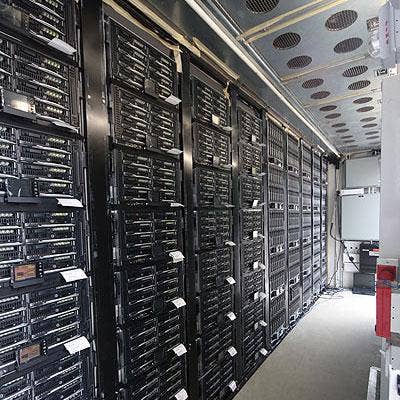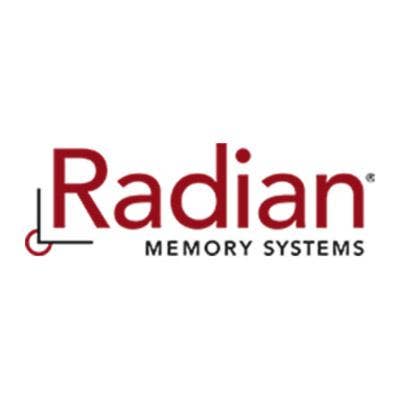The 10 Coolest Storage Startups Of 2015

Storage Startups: Taking Storage Where No Bits Have Gone Before
Every year brings the IT industry a new bumper crop of storage startups. Some will disappear quickly, some will disappear painfully, some will get acquired and see their technology's future out of their control. And a lucky few will survive to become important storage technology pioneers and leaders in their own right.
The year 2015 has been no exception. CRN throughout the year identified 19 startup developers of storage solutions, classifying as startups only those that came out of stealth and unveiled their first offerings.
Expand the definition of startup to include companies that came out of stealth but did not introduce products, or which developed new mobile-only apps, or find a way to count startups that were swooped up by their larger peers without even making a bit of noise in the market, and the number is much larger.
Here are CRN's picks for the 10 coolest storage startups that came out of stealth mode in 2015. Which will make it? You decide.
If you missed it, be sure to take a look back at the rest of the best of 2015 with CRN.

ClearSky Data: Managed Storage Across Physical, Cloud Environments
CEO: Ellen Rubin
ClearSky Data, which in August came out of stealth, combines the performance of local primary storage with cloud storage scalability and flexibility, delivering pools of storage with low latency from local points of presence, according to the company. The Boston-based software developer in November unveiled a B-round of funding, which includes investment from its first strategic investor, Akamai Technologies.
ClearSky Data is essentially an MSP that helps customers find a better way to get value from their data. It does so by managing customers' entire data life cycle, so customers don't have to touch it, while still providing the kind of service level agreements customers get with their own infrastructure, the company said. It brings customers to storage points of presence in colocation centers.

Cohesity: Converged Secondary Storage Solution
CEO: Mohit Aron
Storage startup Cohesity, Santa Clara, Calif., came out of stealth mode in June with $70 million in venture funding. In October, it launched its first solution, the Cohesity Data Platform, an infinitely scalable converged platform that provides a full range of integrated data protection services, including storage of backup and archival data, and cloud connectivity. Data can be easily cloned for test and development, the company said. It also includes an integrated data analytics software application, or allows integration with customers' choice of application.
The basic building block of the Cohesity Data Platform is a 2U hardware appliance with three or four server nodes and up to 96 TB of raw disk space and 6 TB of flash storage. Upgrades and installation are all done without disrupting operations, according to the company.

Hedvig: Distributed Storage Platform
CEO: Avinash Lakshman
Hedvig, Santa Clara, Calif., came out of stealth in March with the introduction of a software-defined storage solution the company said not only breaks the tie between storage software and hardware but also provides the widest range of storage services.
The company, which has raised more than $30 million in funding, was founded by CEO Avinash Lakshman, who the company said was a co-inventor of Amazon Dynamo -- which eventually became NoSQL -- and inventor of Cassandra for Facebook.
The Hedvig Distributed Storage Platform provides a level of abstraction to let compute platforms consume storage regardless of protocol, whether it is file, block or object storage. It provides a wide range of services, including replication, disaster recovery, compression and deduplication, each with its own quality of service.

Infinidat: Advanced Unified Storage Solution
CEO: Moshe Yanai
Storage startup Infinidat, whose team developed EMC's Symmetrix and IBM's XIV enterprise storage solutions, in April introduced a massive $150 million round of funding as well as a new storage architecture. With the funding, the company has an estimated valuation of $1.2 billion.
The Needham, Mass.-based company's InfiniBox is a high-density, high-performance, low-power-consumption storage system that offers more than 750,000 IOPS performance, with more than 12 GBs per second of throughput. It does so with seven nines, or 99.99999 percent, uptime, according to the company, which translates to less than 3 seconds of planned or unplanned downtime per year.
The company in September gave the InfiniBox the ability to run both block and file storage on the same solution, and introduced a high-performance version of asynchronous replication.

I nfinite io: Network-Based Storage Controller
CEO: Mark Cree
Infinite io came out of stealth mode in June with the introduction of its NSC-110, which the Austin, Texas-based company termed the world’s first network-based storage controller. The NSC-110 enables enterprises to transparently integrate cloud storage into existing applications by putting storage controller intelligence into the network.
The NSC-110, officially released to market in October, does not require applications to be re-provisioned or storage to be virtualized with new file paths. Instead, the NSC-110 installs transparently in front of existing storage to migrate inactive data to the cloud in real-time based on business-focused policies, the company said.
Infinite io in September closed a new round of funding worth $3.4 million.

ioFabric: Flash-Optimized Software Defined Storage
CEO: Steven Lamb
Toronto-based ioFabric in July came out of stealth mode with the unveiling of its first round of funding, and followed up a month later with the introduction of ioFabric Vicinity, a flash-optimized, software-defined storage solution for multi-vendor data centers.
IoFabric Vicinity deploys as a physical or virtual appliance to provide storage automation to unify existing storage resources, centralize storage management, simplify flash deployment, and improve storage utilization -- all based on application-specific quality-of-service requirements for performance, capacity and data protection.
IoFabric Vicinity automatically migrates data across diverse storage resources depending on required performance, the company said. It discovers storage media in the infrastructure, and continually monitors it for application workload suitability. IoFabric Vicinity is licensed by capacity, with site and perpetual licenses available.

Qumulo: Data-Aware Scale-Out NAS
CEO: Peter Godman
Seattle-based Qumulo came out of stealth in March with a solution for data-aware scale-out NAS. Qumulo -- whose founding team includes some of the top folks behind Isilon, the scale-out NAS vendor acquired by EMC in 2010 -- has already received $67 million. The company develops software that can be deployed on commodity servers to deliver information on millions of files stored in file format.
Qumulo's claim to fame is the data awareness its technology offers. Qumulo's file system has an integrated database that provides the ability to answer questions about what is stored without needing to scan the data for metadata that must be separately stored and managed.

Radian Memory Systems: Reimagined SSD Hardware
CEO: Mike Jadon
Radian Memory Systems, Calabasas, Calif., emerged from stealth mode in August with technology to significantly boost the I/O performance and decrease the latency of conventional SSD hardware.
The company's Symphonic technology combines SSD firmware, host libraries, and an API to replace the Flash-Translation-Layer (FTL) traditionally found on SSDs. It allows the abstraction of lower-level flash attributes while enabling the host system software to directly manage the flash. Symphonic gets around scalability, reliability and serviceability issues of removing the SSD FTL by turning the SSD into an offload accelerator engine, minimizing host system resource consumption and enabling linear scalability across metrics as additional SSDs are added to a system, according to the company. Radian said the solution also cuts costs by removing the need to overprovision flash memory in SSDs.

Rubrik: Simplified Data Protection
CEO: Bipul Sinha
Startup data protection software developer Rubrik in January exited stealth with a $10 million funding round, and in March followed up with a $41 million round. Investors include John Thompson, Microsoft chairman and former CEO of Symantec; Frank Slootman, CEO of ServiceNow and former Data Domain CEO; Mark Leslie, former CEO of Veritas; and Dheeraj Pandey, founder and CEO of Nutanix.
The Palo Alto, Calif.-based startup also released its first solution, the Rubrik r300, a hardware appliance that ties the company's data protection software with an industry-standard server and a hybrid cloud infrastructure to offer a scale-out solution for keeping a company up and running in case of data loss. Rubrik in November hired Bill Cordero, a long-term channel executive, to develop its first formal channel program.

Springpath: VMware-Focused Hyper-Converged Infrastructure Software
CEO: Terry Cunningham
Springpath, a storage startup founded by former VMware engineers, came out of stealth mode in February with funding of $34 million and new software for turning industry-standard x86-based servers into hyper-converged infrastructure appliances.
The Springpath Data Platform software, which is sold as a subscription that starts at $4,000 per server per year, lets enterprises leverage industry-standard servers to manage and store data with a full set of enterprise-class features. The Springpath Data Platform scales out both in terms of data management and storage. It runs on a minimum of three servers -- which could include servers from Cisco, HP, Dell and Supermicro -- and can be shipped to the partner preinstalled by the company or a distributor or configured by the solution provider.